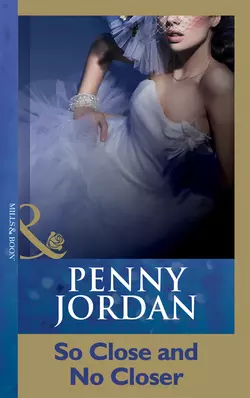So Close And No Closer

Пенни Джордан
Тип: электронная книга
Жанр: Современная зарубежная литература
Язык: на английском языке
Стоимость: 152.86 ₽
Статус: В продаже
Издательство: HarperCollins
Дата публикации: 16.04.2024
Отзывы: Пока нет Добавить отзыв
О книге: Penny Jordan needs no introduction as arguably the most recognisable name writing for Mills & Boon. We have celebrated her wonderful writing with a special collection, many of which for the first time in eBook format and all available right now.Rue didn′t need a man in her life. She didn′t want one, either. The past had taught her only too well the chaos that love could bring. She was happy enough, building her small dried-flower business and learning to enjoy life on her own. Neil Saxton, however, seemed determined to break down all her defences. Neil made it clear that he wouldn′t take no for an answer when he offered to buy her land.But somehow, Rue got the distinct feeling that it was more than her property he was after…